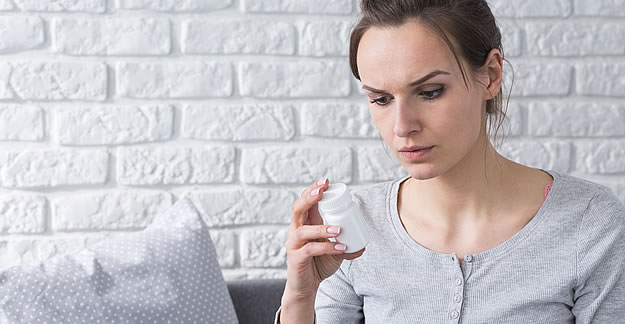Are you a woman on herbal supplements? Do you know how safe they are?
Holistic health is big business in the US, in large part because many companies claim to have health benefits. This is cause for concern, because in 2012, nonvitamin, nonmineral natural products remained the most popular complementary health approach used by American adults and children, according to the National Health Interview Survey.
In a separate review, most reported reasons for taking supplements is to “improve” (45%) or “maintain” (33%) overall health. While less than a quarter of supplements adults used came from a the appeal of plant-based medicine is not unfounded. “Some people may dismiss herbal remedies as quackery, but the use of botanicals is well rooted in medical practice,” says Stacey Chillemi, an herbal educator and co-author of The Complete Herbal Guide and Natural Remedies for Common Conditions
“More than a quarter of all modern drugs use ingredients derived from plants,” says Chillemi.
Still, natural does not automatically mean safe. These potions and remedies “can have significant, even fatal interactions with prescription drugs,” according to the FDA. Women may have adverse reactions to supplements more often than men simply because more women use them overall,” according to a 2014 study.
A 2015 study that Ian Musgrave, Phd. of University of Adelaide co-authored found that women more frequently reported negative reactions to St. John’s Wort, a supplement that some research suggests may help ease depression.
Here three reasons women have adverse reactions, often due to and female-specific reproductive issues:
1. Herbal Supplements and Birth Control
St. John’s Wort can interfere with the effectiveness of oral contraceptives, says Musgrave. Other herbs, including Vitex, Black Cohosh and Red Clover may help manage symptoms related to menstruation and menopause, for example, because they can influence levels of female hormones like estrogen, according to a 2017 review of effective herbal medicines. For that same reason, they should generally be avoided by women using hormonal birth control methods because the herbs may make them less effective.
2. Herbal Supplements and Pregnancy
“The FDA urges pregnant women not to take any herbal products without talking to their health care provider first,” says Chillemi, and they should also seek guidance from an experienced herbalist or other professional familiar with herbal medicine. “Herbs may contain substances that can cause miscarriage, premature birth, uterine contractions or injury to the fetus,” she says.
Sprinkling herbs in your cooking is still safe. Other herbs used medicinally, however, are likely to be unsafe to use during pregnancy or breastfeeding, or if at higher risk of hormone-related cancers: saw palmetto, dong quai and goldenseal (only a risk for pregnancy and breastfeeding). Certain culinary herbs, such as rosemary, garlic, sage, ginger, and turmeric are safe to use in foods in the amounts normally used for cooking, but might be unsafe in large, concentrated doses during pregnancy.
3. Herbal Supplements and Menopause
Herbs that influence hormones may also be helpful in managing problems related to menopause. “Black cohosh, red clover, chaste-tree berry, dong quai, evening primrose, ginkgo, ginseng and licorice are among the most popular herbs for women experiencing problems with menopause,” says Chillemi. But again, because of these effects, they could also interfere with hormone therapy. “Some of these herbs have powerful hormone-like effects, and women should not assume they are harmless,” she says.
Approximately 51% of women use complementary or alternative medicine (CAM) and more than 60% perceive it be effective for menopausal symptoms. However, most women using CAM do not discuss it with their health care providers –
The National Center for Complementary and Integrative Health offers a comprehensive resource of safety information and other data on various supplements.
“Always tell your medical practitioner of your herbal medicine use to ensure you are not taking them with drugs that could potentially interact, and so that side effects can be monitored,” he adds.






